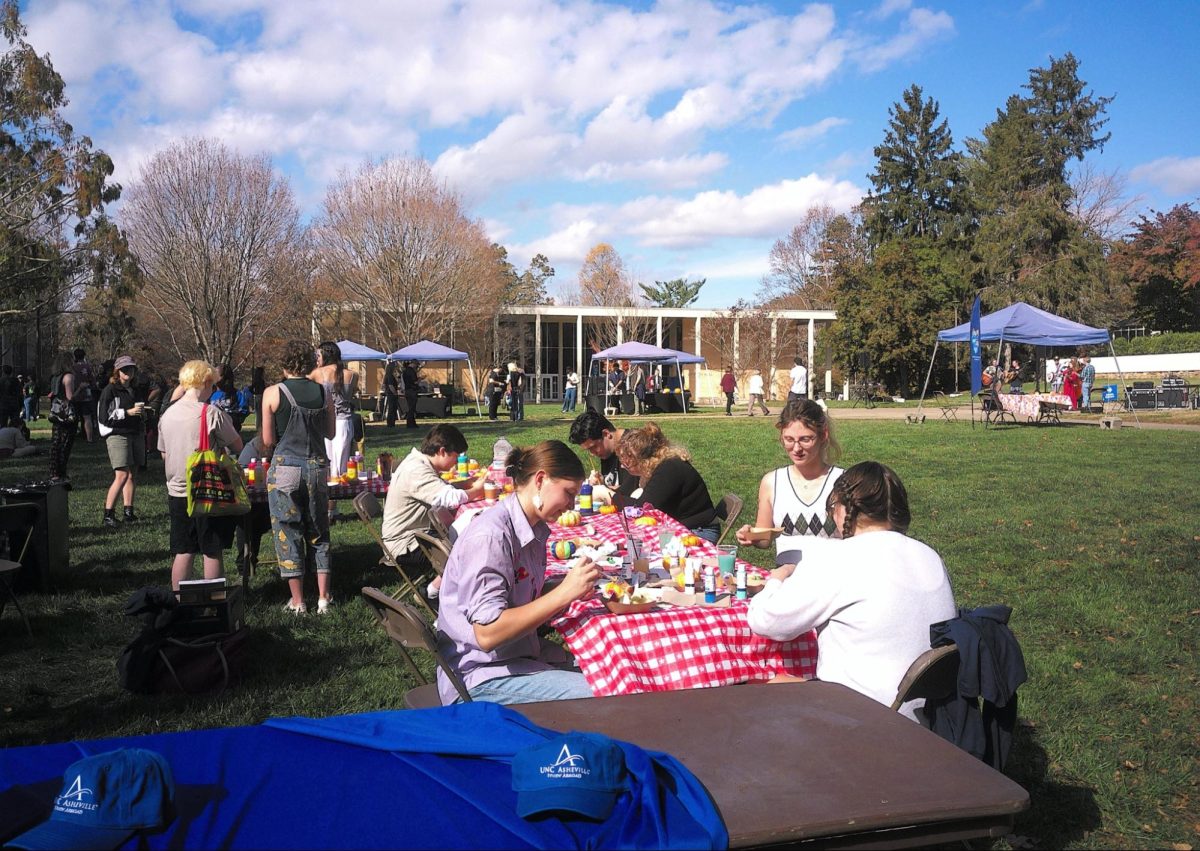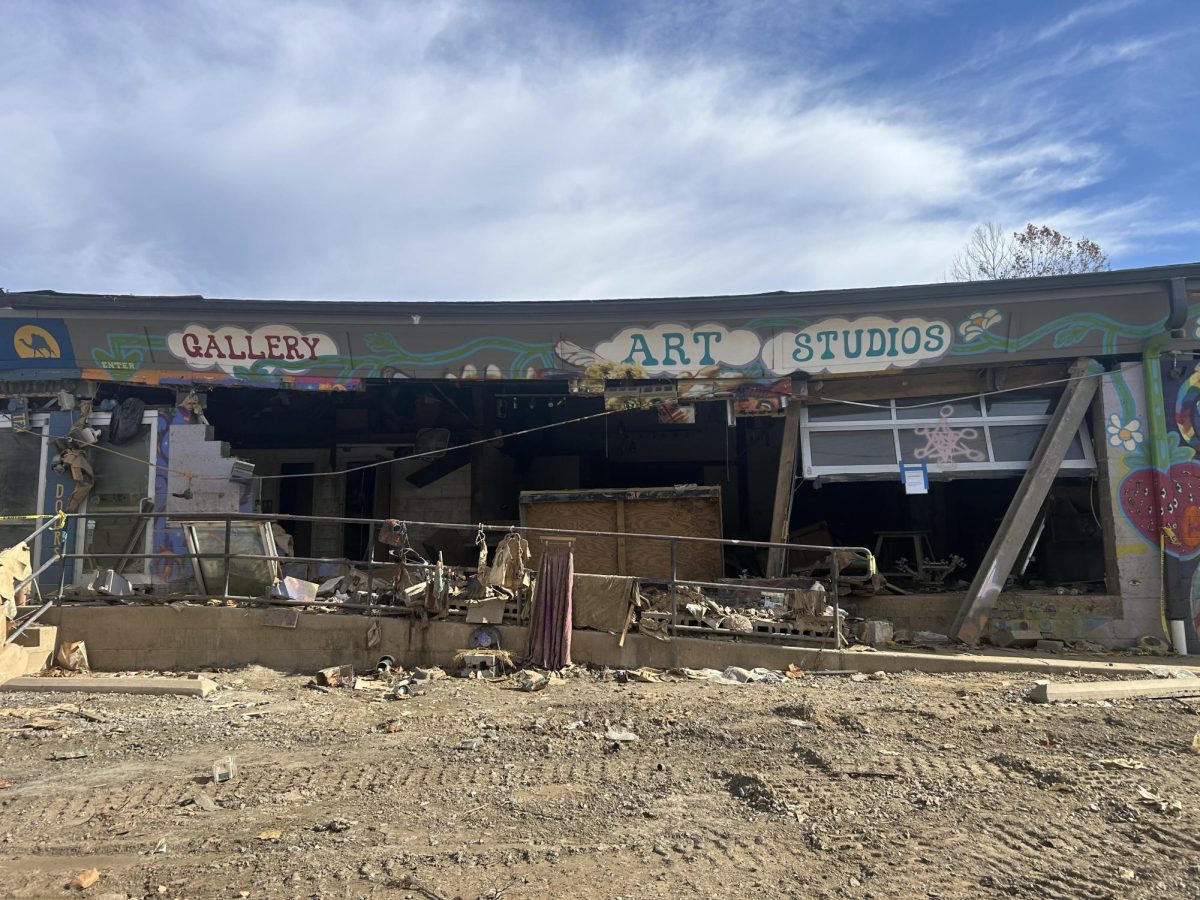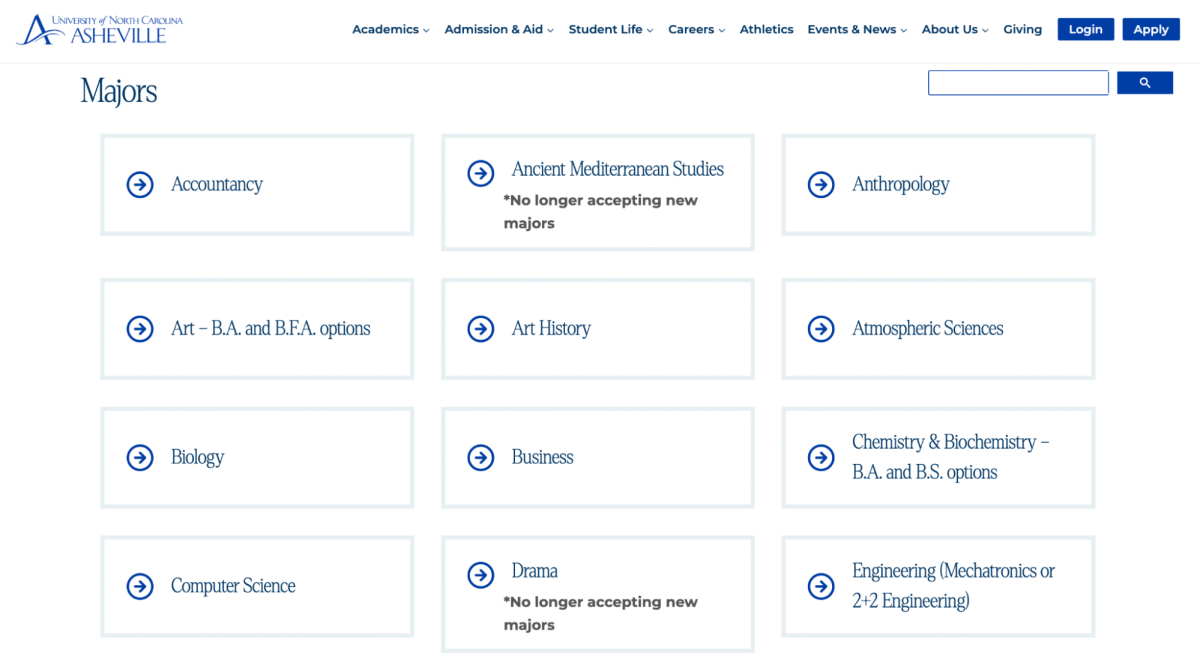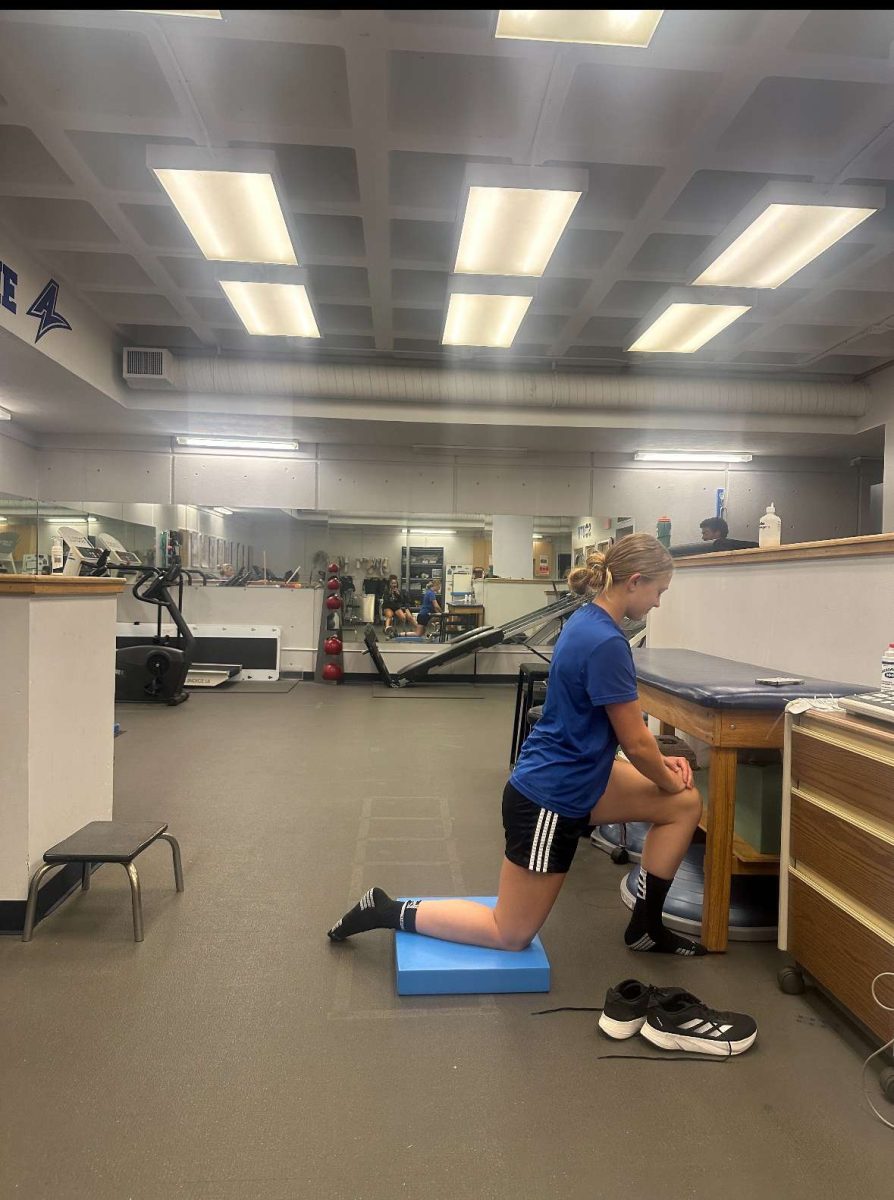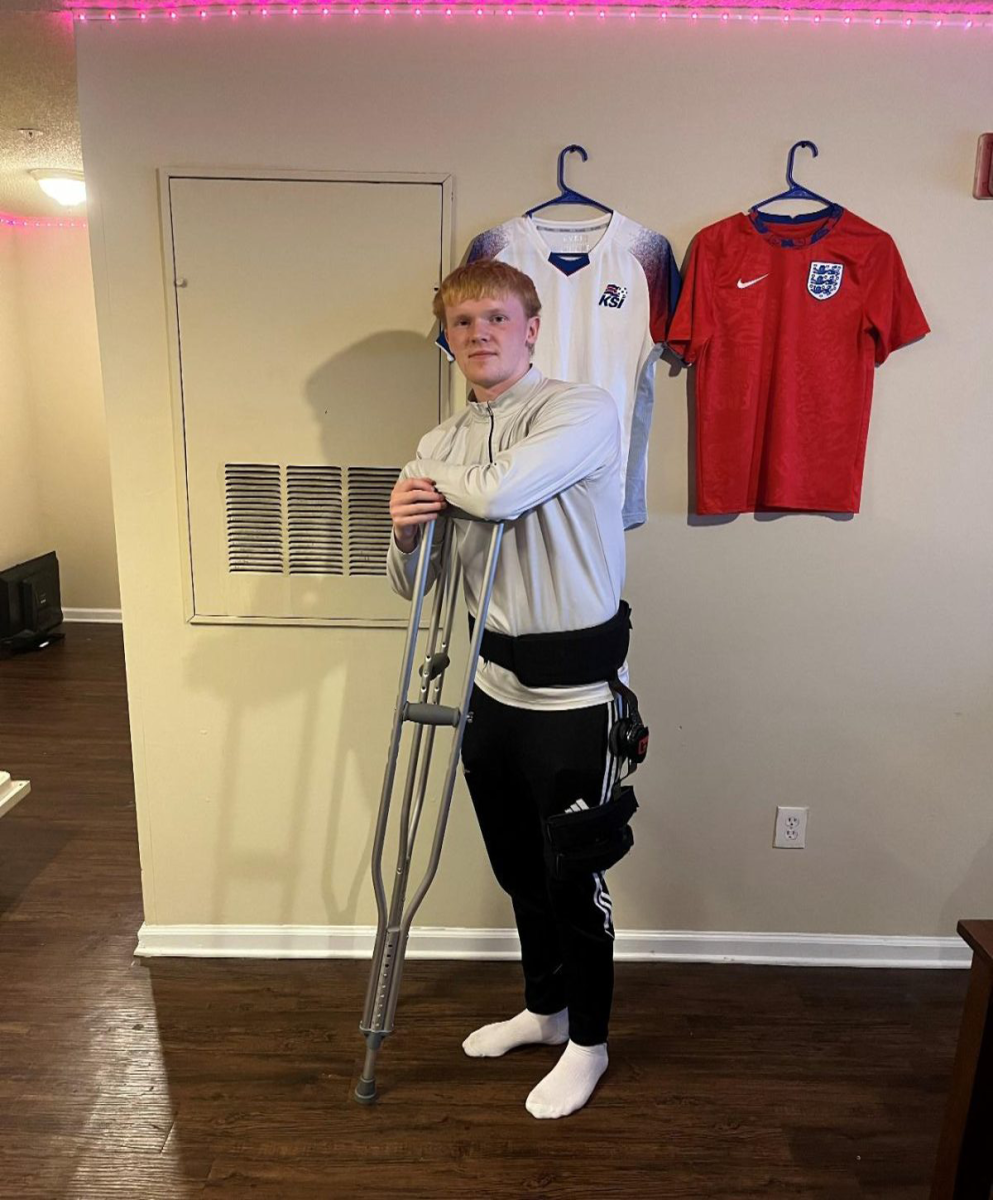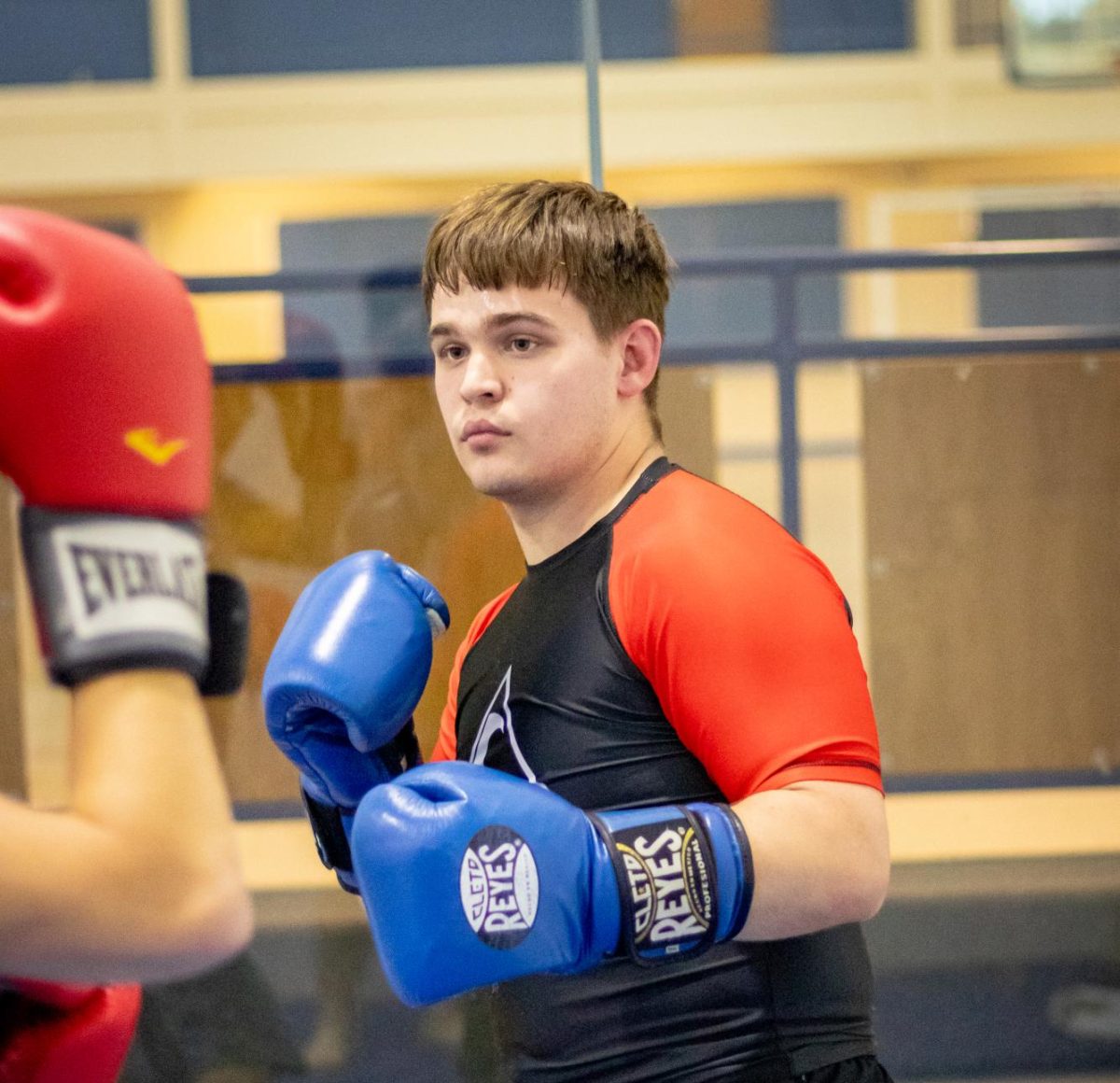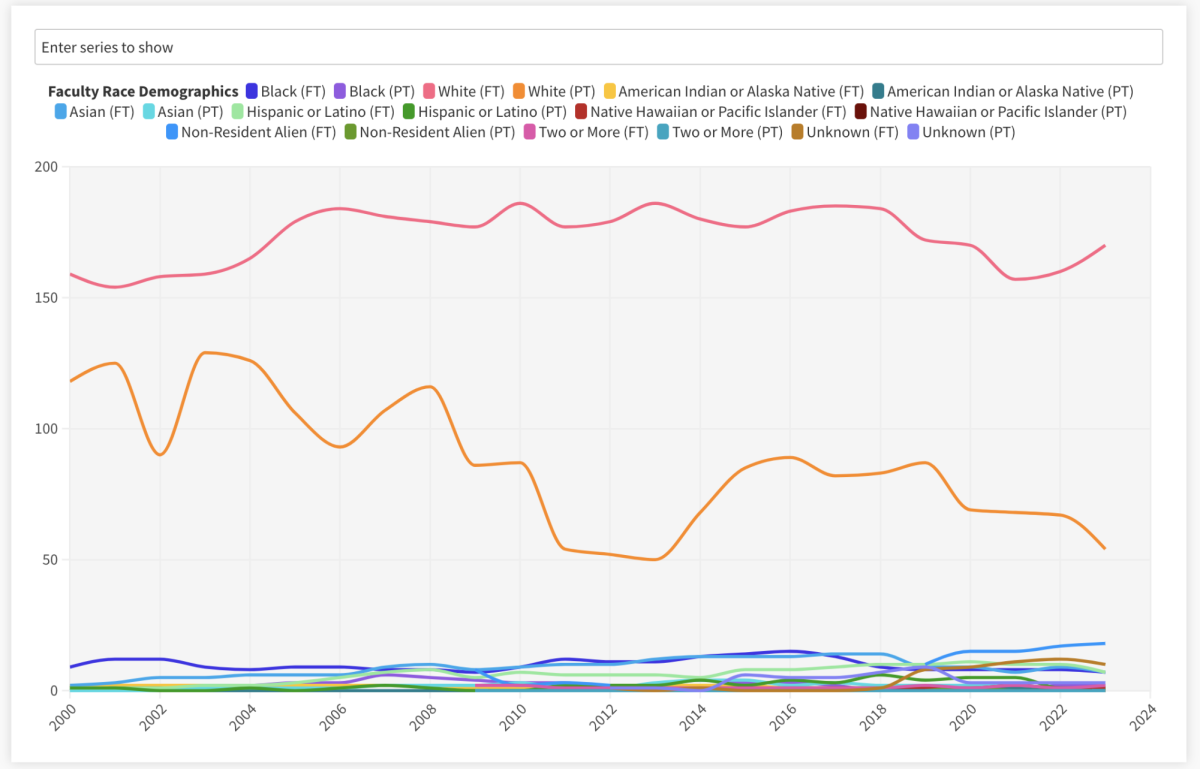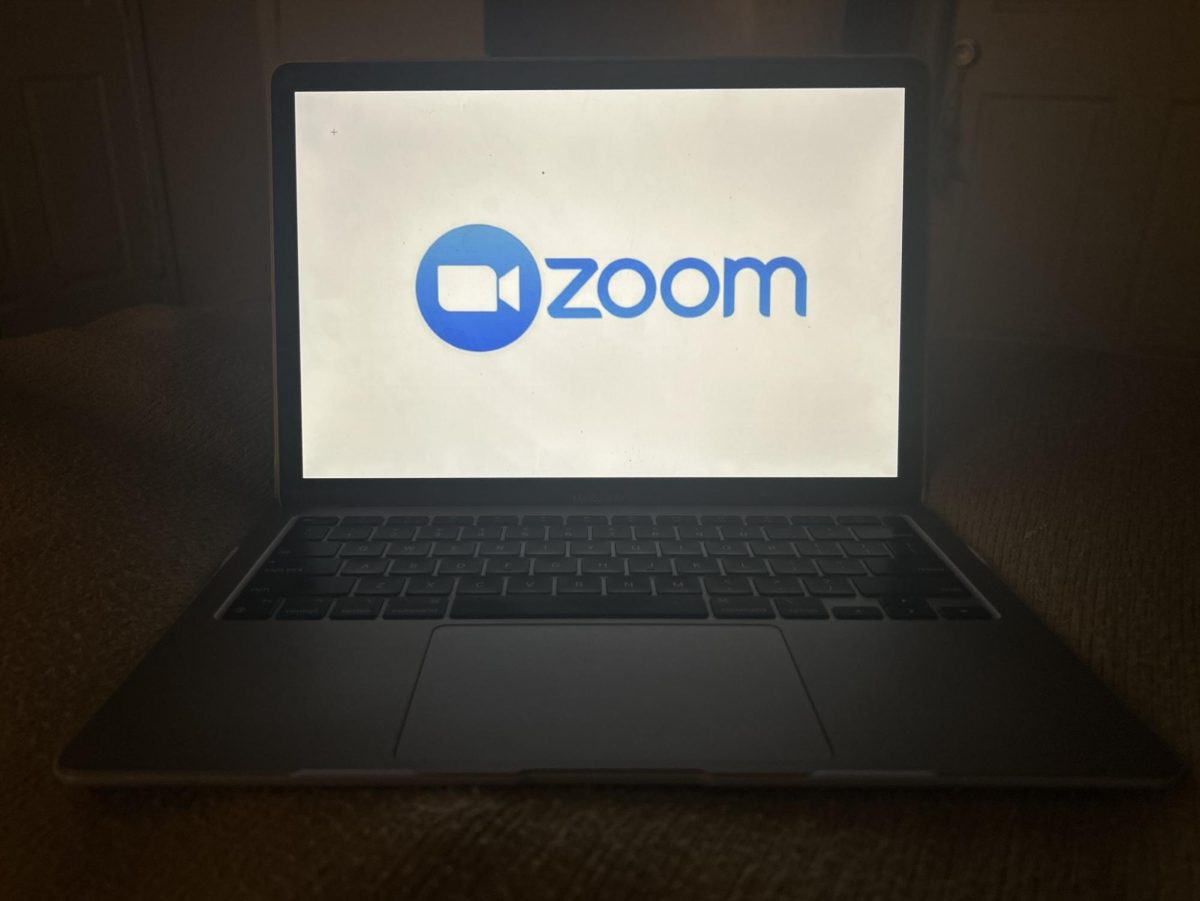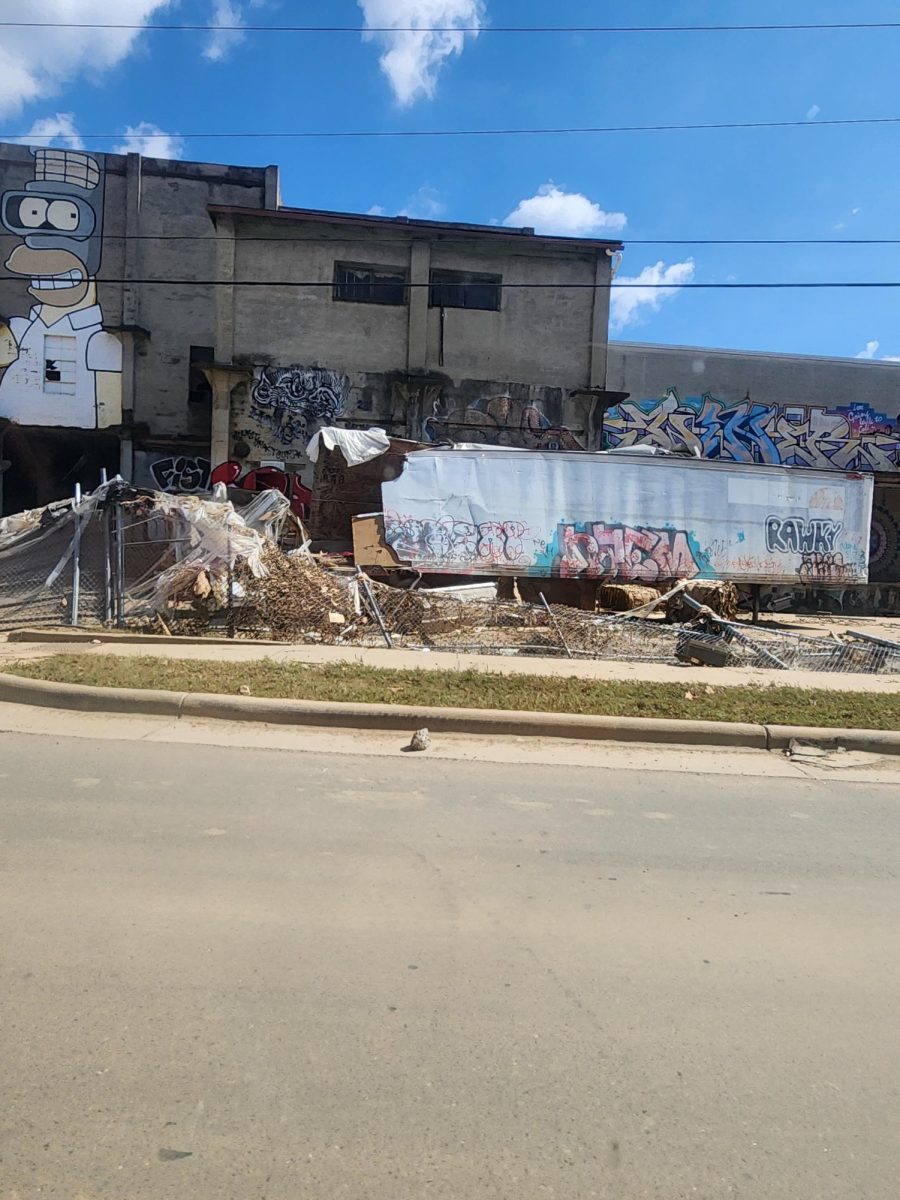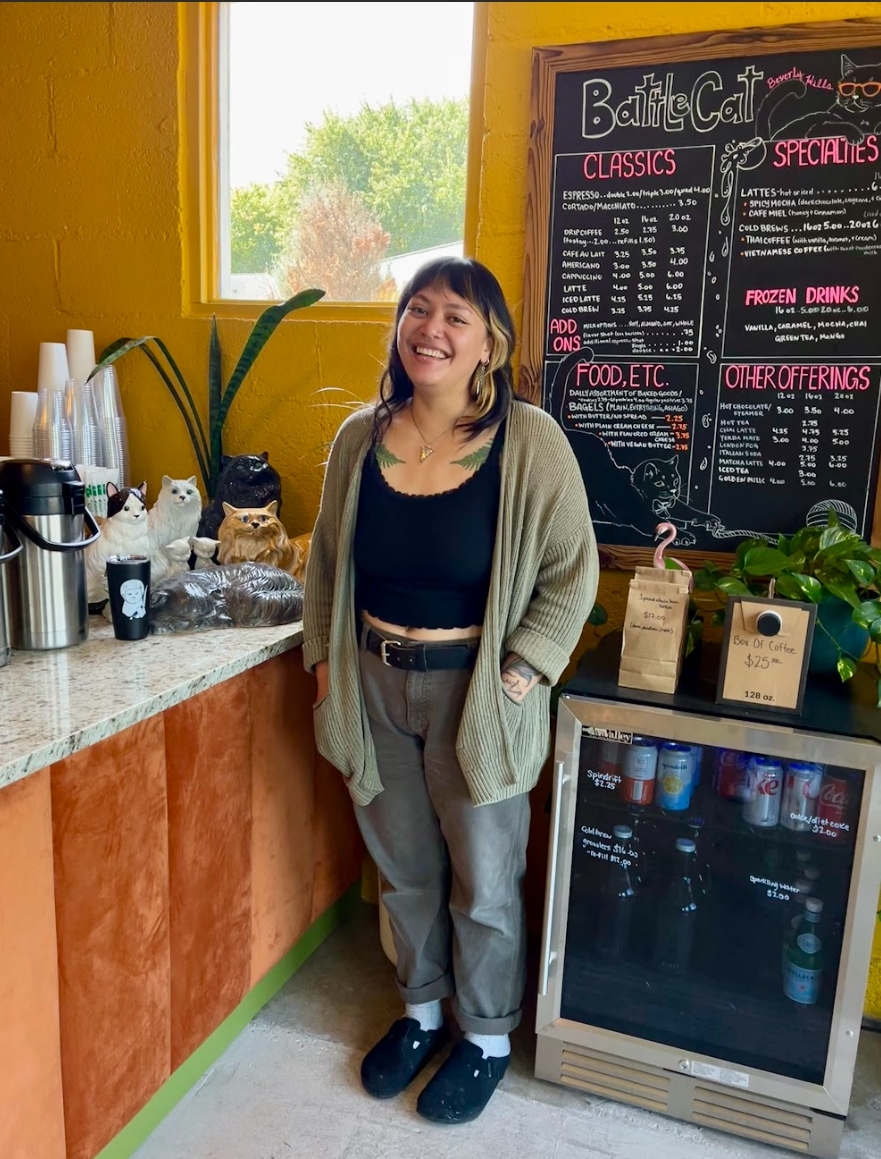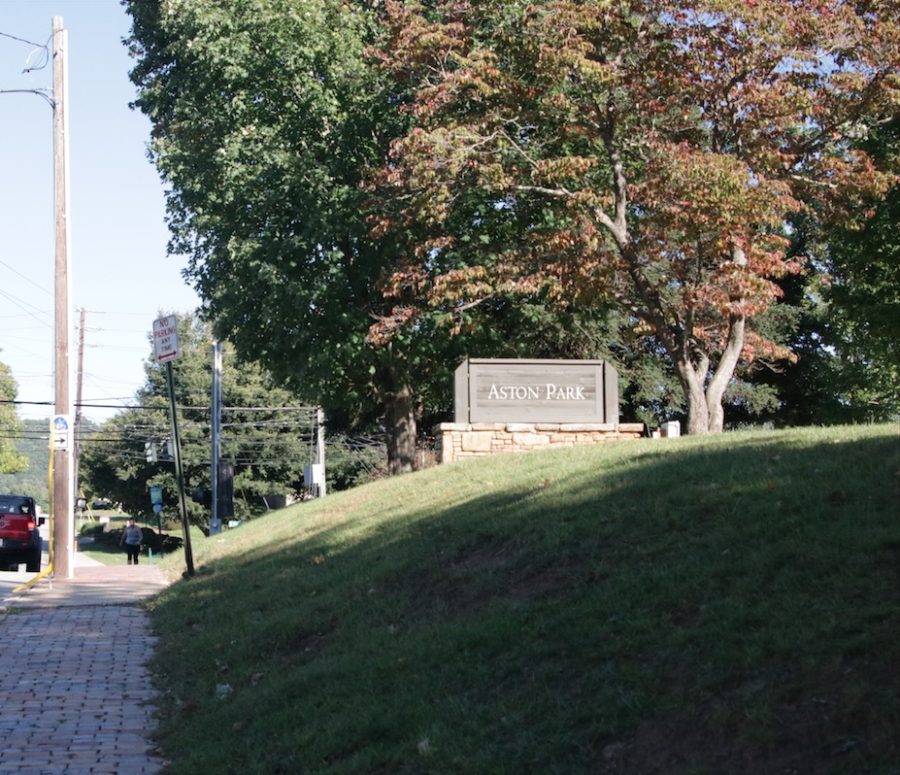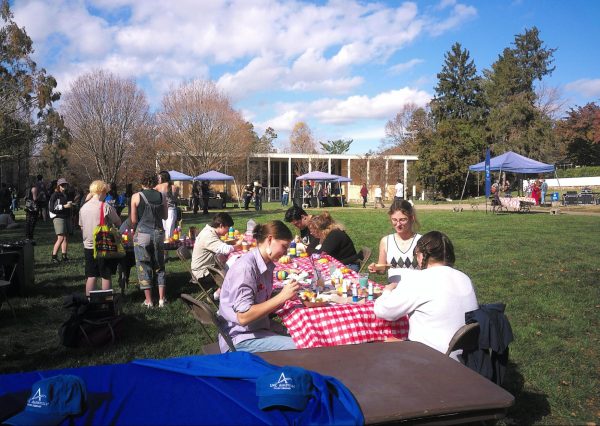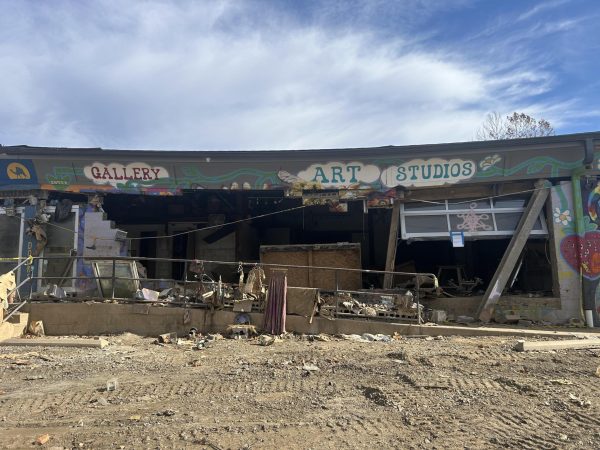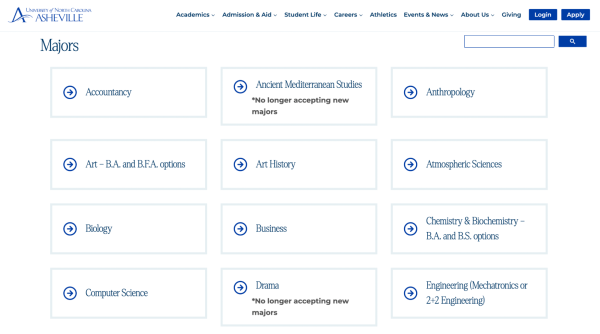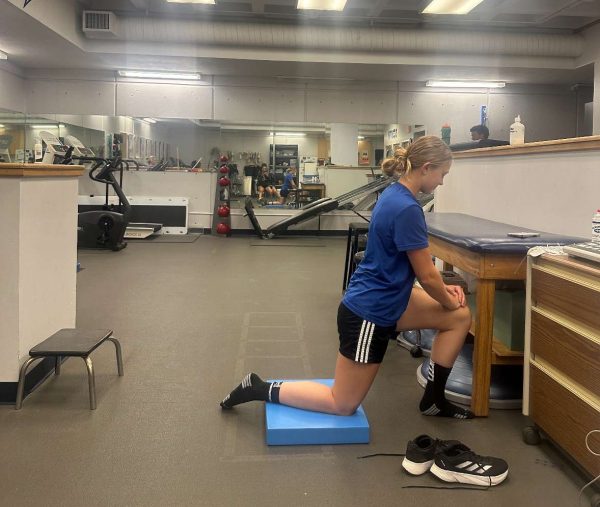Aston Park 16: mutual aid volunteers face felony charges for activism
Aston Park, located at the corner of Hillard and South French Broad ave, in downtown Asheville.
City parks provide traditional public forums where private citizens gather to exercise their first amendment rights. Whether it’s a protest or a date in the park, such events typically don’t end with felony littering charges.
At Aston Park, one of Asheville’s largest city parks, Simitri Martinez, 21, works alongside the Asheville Survival Program, a mutual aid group dedicated to collaborating and serving people experiencing homelessness and other oppressed communities. Every Saturday and Sunday at Aston Park for the past year, they distributed harm reduction tools, medical supplies, clothes, food, and seasonal gear required to survive on the streets with their sister organization, Streetside.
“We all show up and do this every week, no one is getting paid for this,” Martinez said. “We have a lot of say in how things go, especially talking with folks in the streets. They’re also as much a part of this in how and what we do.”
In December, the Asheville Homeless Coalition declared a code purple, alerting all participating shelters to implement additional beds and space in preparation for an influx of individuals and families seeking shelter from the freezing cold.
Churches and other nonprofit organizations such as The Salvation Army and Trinity United Methodist Church are provided funding by the city to meet the demand for emergency shelter during extreme weather conditions.
However, the Asheville Homeless Coalition only calls for a code purple when the temperature meets or falls below 32 degrees.
“It doesn’t take into account when it’s wet outside or other variables with weather conditions that make it difficult for those lacking shelter to sleep outside,” Valentina Matute, 21, said.
Matute also volunteers with Streetside and advocates for sanctuary camping, a movement for county-approved camping on public property where those experiencing homelessness have access to restrooms, waste disposal, and proper heating and shelter.
When code purple shelters are at capacity, individuals experiencing homelessness are left to fend for themselves. Yet, Kathryn Hudson, 29, said code purple shelters had to wait for funding from the city to meet demands.
In addition to code purple shelters, the Asheville Police Department changed its protocol on encampment removals, reducing the seven-day notice for people experiencing homelessness to evacuate in 24 hours.
“The city didn’t really do that, so that’s why there was a push for folks to sleep where they’re at,” Martinez said.
During this time, Martinez, Hudson and Matute continued to volunteer with ASP and continued discussions with others in the mutual aid group to advocate for sanctuary camping as well as distributing goods like normal.
Shortly after, volunteers were arrested and charged with felony littering and aid and abetting. Some volunteers weren’t aware of the charges until after they received a letter banning them from all city parks. If any of the defendants were found on the premises, Martinez said they would face another charge of criminal trespassing.
“Something that came along with the folks who are facing felony charges is that the city of Asheville has now enacted a parks ban against a majority of us,” Martinez said. “It’s pretty ridiculous. APD can say they assumed you were going to commit a crime or think that you committed a crime so they are then allowed to ban you from a park.”
The volunteers said the park ban was especially difficult since a majority of their communication with those in need is through word of mouth. Without a reliable cell phone, dependable location to charge your device or WiFi, regulars of the free store were displaced and forced to seek help elsewhere.
“It really did fuck up how we show up streetside because a majority of us were active with food distributions every week,” Martinez said.
Prior to the felony charges, mutual aid volunteers said there was tension leading up to the park ban, gaining the attention of city officials.
“It was kind of weird because we had some city officials come to Aston and say things to us, and being really weird, just trying to harass us a little bit. They were talking about permits and stuff,” Martinez said.
According to Buncombe County Code of Ordinances section 54.8, individuals, cooperations, organizations, clubs and other groups are required to submit a temporary use application if gathering in parks and recreation centers when 100 or more people are expected to attend. However, the Development Services Department, responsible for performing building code inspections and processing residential and commercial permits, does not specify if a temporary use permit is required if the expected attendance is less than 100 people.
Despite the setback, Streetside continues to accept donations and give away goods from their free store on Lexington ave bridge, the interstate 240 underpass in downtown Asheville.
The mutual aid group depends on donations and fundraising campaigns in the community. ASP functions and maintains accountability through the core values of building trust, checking your peers and your privilege and awareness of speaking over the experiences of the people they’re serving in the community.
“You need to have a connection, you need to keep in mind what it looks like when a bunch of white people show up to a predominantly black neighborhood trying to start a potluck,” Matute said. “You have to keep in mind what that looks like,” Matute said.
Unlike nonprofit organizations in Asheville that receive state funding, the mutual aid group relies on donations and peer support through fundraising campaigns such as community-based transitional housing, camping gear, free store items and rent for Latine families.
“I think the difference between the different organizations beyond core values, is that each of the nonprofits in the community has a different role they play,” Hudson said. “Things use different structures to accomplish different goals.”
As more individuals associated with ASP were charged throughout this year, Martinez said they found strength and solidarity from residents and faith leaders in the greater Asheville community.
“Trust takes a lot of hard work. You have got to be committed and show up consistently. It takes a while but it’s definitely necessary and worth it,” Martinez said.

